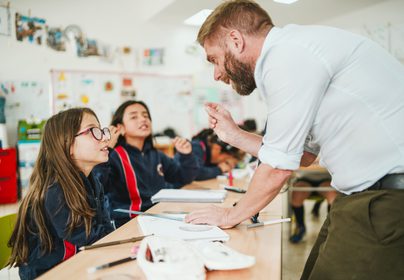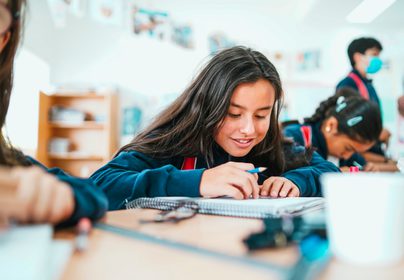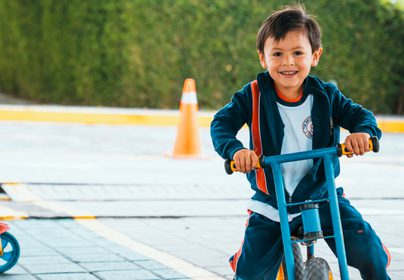Sustainability and Climate Change at BSQ
At BSQ we are committed to protecting our planet with a focus on sustainability and a drive to reduce climate change.
This ethos is spearheaded by our Principal, David Jones, who has worked for many years with the UNESCO chair for the reorientation of education for sustainable development. But it’s something that our teachers and students are equally as passionate about. Many of our activities are driven by our students, empowering them to become agents of change to pioneer a healthier future for our planet.
Young people need to recover the belief that they can change the world and make it a better place for everyone. At BSQ we empower students to be change agents and leaders today, acting now in preparation for a tomorrow that can no longer wait on the passivity of current adult leaders.
We are continually thinking of new ways to introduce sustainability and climate change into our curriculum and our daily lives, here are just some of our current initiatives to give you a flavour of what we’re up to. Much of this page has been written by the students who helped drive these initiatives because we’re proud that our students have such a strong voice when it comes to our planet and their future.
Botellas de Amor
At BSQ, we have started the ‘Botellas de Amor’ initiative. If you have never heard of it, it’s filling up disposable, single-use plastic bottles with pieces of clean flexible plastic e.g. candy wrappers and crisp packets.
Once full, these bottles can be deposited in the collection stall at the school's entrance. They will be collected and melted down to make new school equipment such as benches, playgrounds and even roofs. These products will be donated to places that need them. The purpose of this activity is to reduce the plastic waste we produce in our daily lives and to limit the negative impact this plastic has on the environment. This initiative also has a positive impact on the wider Quito community, as we create needed products from wasted plastic. We think this is a very positive initiative that is easy to follow by everyone in our school community.
Written by Martín, Year 12 student and champion of this activity
The Black-Eyed Susan Vine
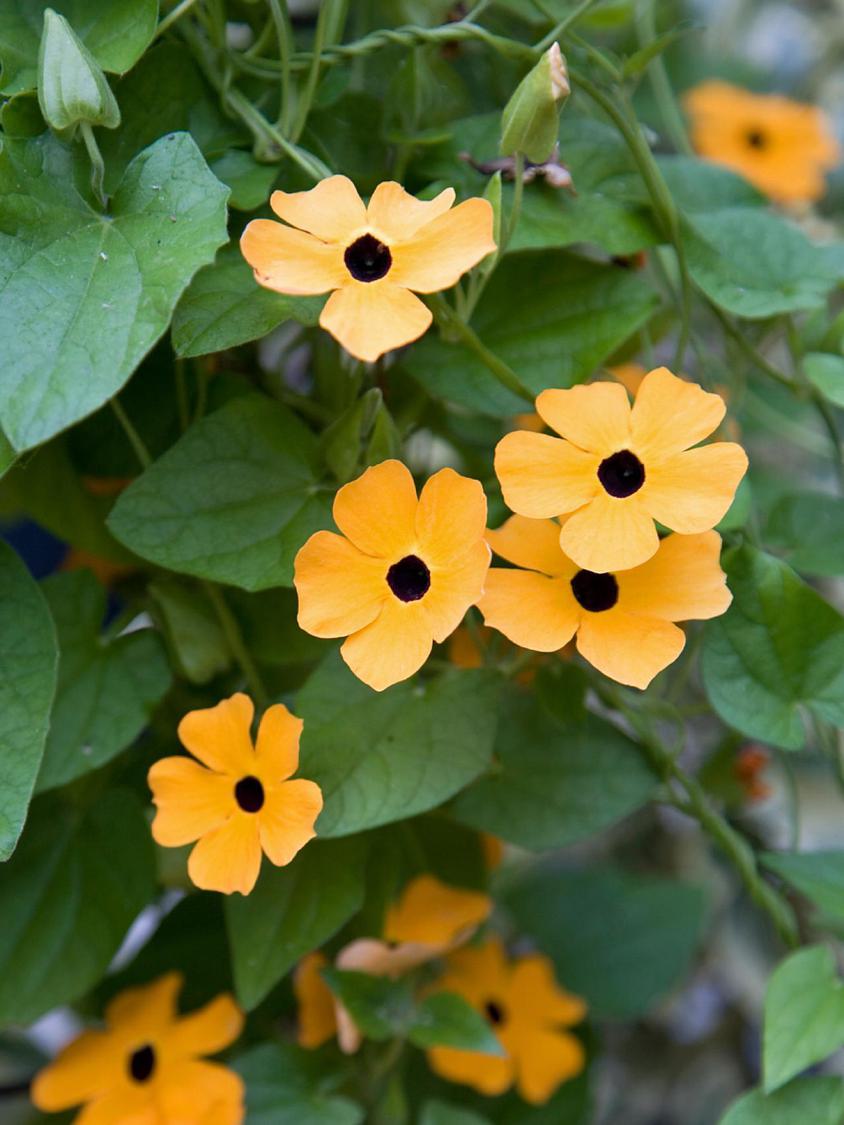
The Black Eyed Susan vine, known as 'Ojo de Poeta' in Spanish and 'Susanitas' colloquially, is one of the most widespread invasive species in Ecuador. The vine originates in Africa and was brought over to South America during the colonial period. Nowadays, forest areas such as Ilaló are engulfed by the vine.
We have taken an ambitious approach to help reduce the climate crisis that these invasive vines contribute towards. We have conducted a report that we're hoping to present to the Ministry of the Environment to stop the sale of these vines. This is because, in some plant shops, they are still available for sale despite the fact that they are slowly killing the biodiversity of the Chocó Andino.
Neighbouring nations, such as Colombia, have already taken a step to stop the spread of these vines, which is why we believe it is possible to convince the Ministry of the Environment to issue a new law impeding their sale.
Additionally, we hope to make the whole BSQ parent and student body conscious of the damages these vines pose, to encourage them to adequately remove them if they see them.
The best approach when seeing a Black-Eyed Susan is to remove it from the root and place it in a plastic bag that will later be burned. However, if this is not possible it is best to leave them since if you pull out a small piece and then throw it away, they will still grow. The Black-Eyed Susan is notorious for being able to take root very easily and for growing very quickly, they can even take root in pavemented areas. Due to this, we encourage you to not touch them if you do not have a plastic bag to dispose of them.
Written by Samantha, Year 13 student and champion of this activity.
UN Accredited Sustainability Teachers

We are delighted to be the first school in Latin America to have UN-certified climate change teachers. It is a powerful programme, and we are incredibly proud to say that over 20 BSQ teachers have completed a variety of these courses. Our teachers are using the skills they’ve learned through these courses to introduce school-wide initiatives and to cover these topics in our curriculum. You can find out more about this programme here: https://britishschoolquito.edu...
Solar Panels

BSQ has taken a huge step towards diminishing our Carbon Footprint through the
introduction of solar panels.
Initially, our 2020 Red MOVE team calculated the school's Carbon Footprint and through this research, we recognised that the school's electricity consumption was one of the school’s greatest releasers of greenhouse gases. Due to this, we decided to install solar panels to responsibly reduce our Carbon Footprint.
The process included a contribution from myself, the secondary math teachers and the Executive Director of The British School Foundation, Andrés Robalino. Through our collaboration and research, we submitted a proposal to our group (Orbital Education Group) Central Office.
It was approved and now, our solar panels have been installed. We choose ethically produced panels, ensuring that no child labour was involved in production. Our panels are expected to reduce 30% of the school's electrical Carbon Footprint & they are saving up to seven tons of Carbon Dioxide yearly.
The solar panels indicate the school's and the student's keenness with reducing the impact we have on our environment, to help reduce the climate crisis.
Bee Garden
The BSQ Primary student Council have led a project to support our school’s mission to become the most sustainable school in Latin America.
Our wonderful primary student council have built a bee garden with the objective of protecting biodiversity by providing food and habitat for bees and other pollinators. Bees have an extremely positive impact on our ecosystem as plants, flowers and shrubs all rely on them. You can find out more about this project, and watch a short film, here: https://britishschoolquito.edu...
Rio San Pedro river clean-up
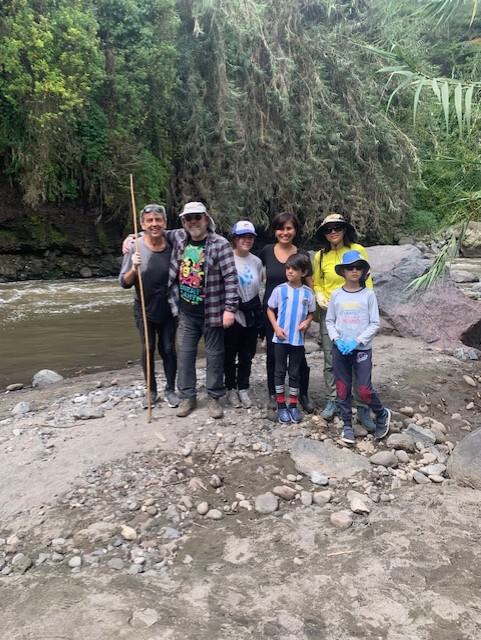
When called, a team of BSQ students and teachers are ready to give up their Sunday mornings to clean up our beautiful Rio San Pedro river.
The Rio San Pedro river starts in the Ilinizas and runs through many farms, towns and industries in the Canton Mejía, Rumiñahui and Quito. The more it meanders from its source, the more polluted it becomes, as four students from WIP University discovered when they partnered with Kingue Adventure School to map pollution at various points throughout the river.
Our students saw this report and wanted to help. With their rubber boots and gloves on, our students got to work using shovels and pick-axes to move rocks and sediment to pull out the waste.
This was no easy task and we’re delighted with our students’ resilience and commitment. They were so moved by this activity that they plan to make clean-up visits on a continual basis. You can learn more about their first river clean-up here: https://britishschoolquito.edu...
Meatless Mondays and the BSQ Learning Cafeteria
BSQ has been running ‘Meatless Mondays’ for the past few years. This initiative makes us more aware of the impact that meat production and consumption have on climate change.
For instance, did you know that if the world reduced meat consumption by 15% it would have the same impact on greenhouse gas emissions as taking 240,000,000 cars off the road each year! Here at BSQ we do our bit by taking meat off the menu for just one day a week to enjoy alternative, more sustainable sources of protein.
To remind us of the positive contributions that we make by thinking about our diets, our students have designed public information displays in our cafeteria area so that we can also learn about what we eat whilst we eat.
These are just a few of our many student initiatives and sustainability campaigns that enrich our curriculum and our approach to learning here at BSQ. Over the coming weeks and months keep your eyes open for more news. This month we will be hosting an Expert Panel Discussion with leading UN experts, environmentalists and public servants who will be joining us to share their ideas on the UN Sustainable Development Goals – ‘ESD 2030 –Where are we now?’ And, in September look out for the WFP/BSQ SDG Recipe Book and find out about meals that make a difference and contribute to reinforcing Ecuador’s Schools Feeding Programme.
At BSQ we don’t just say it – we do it!


